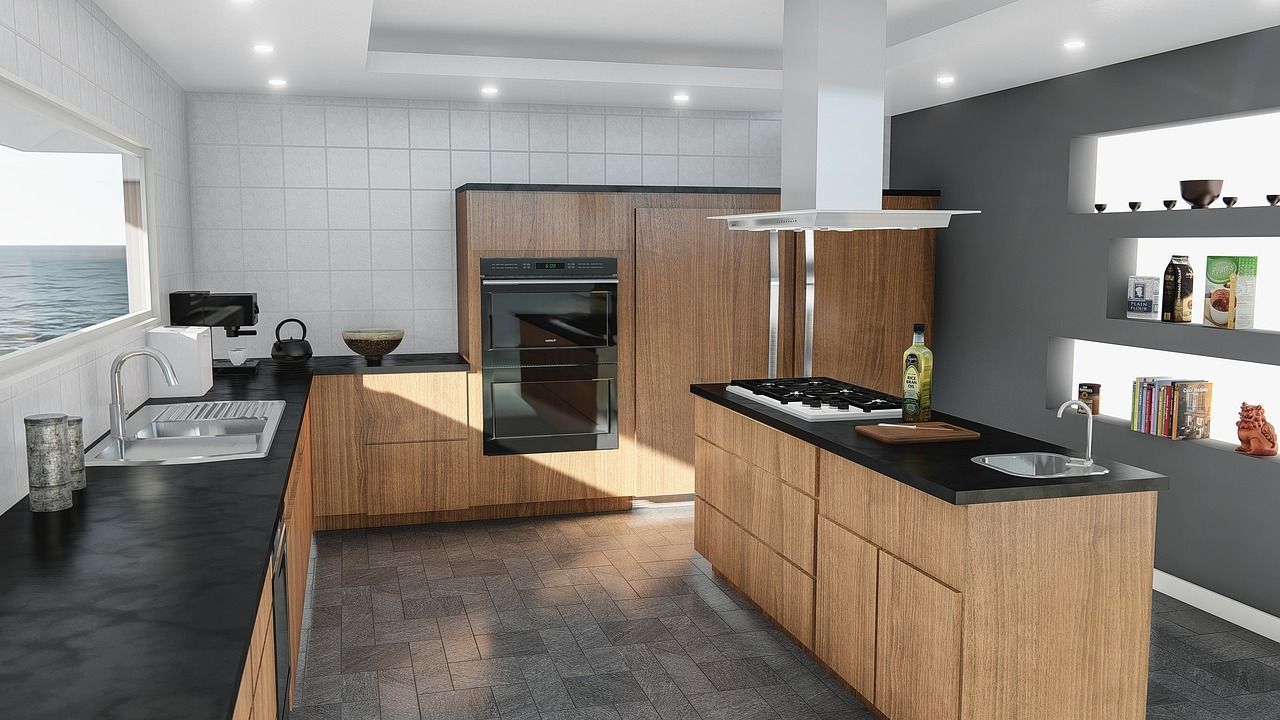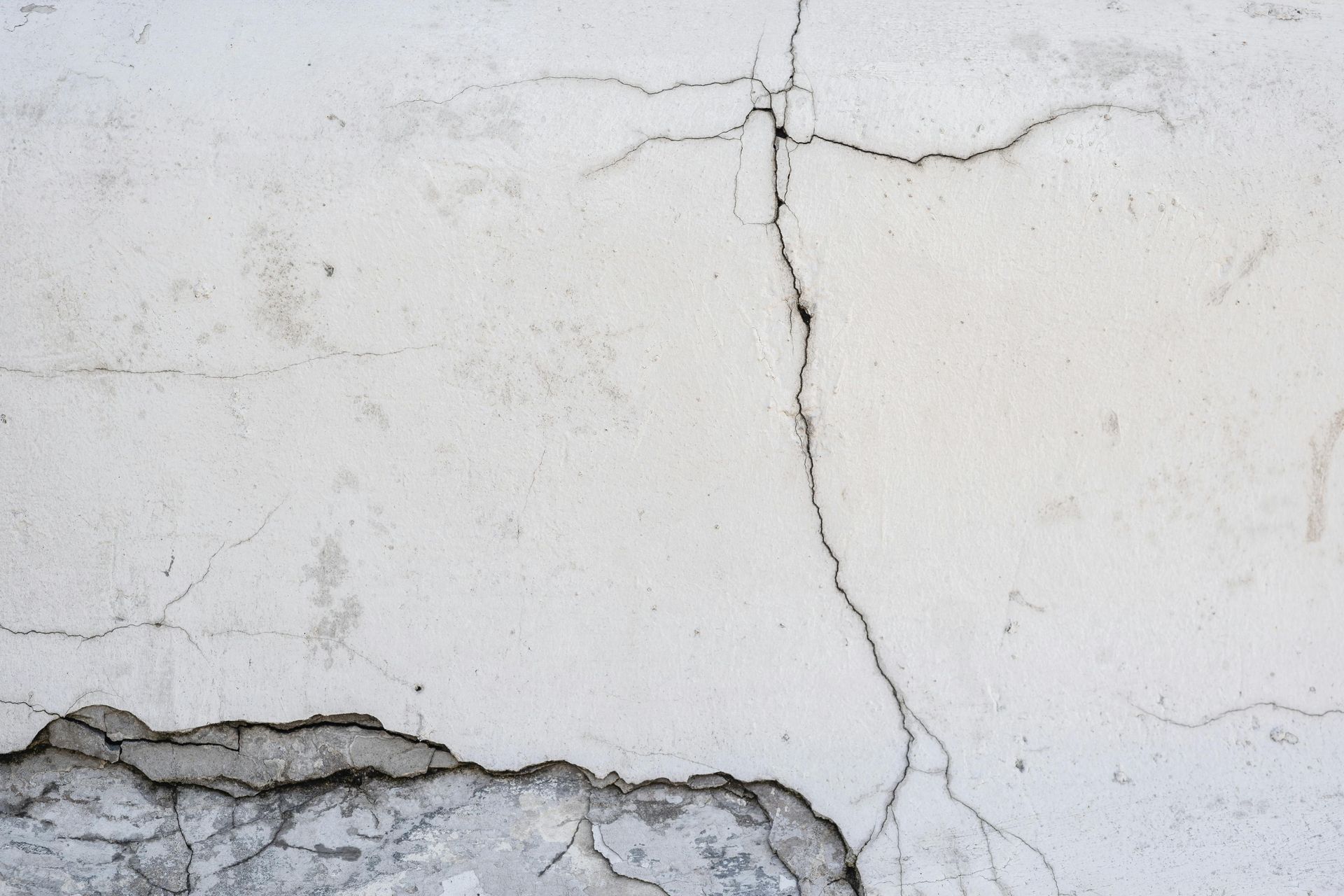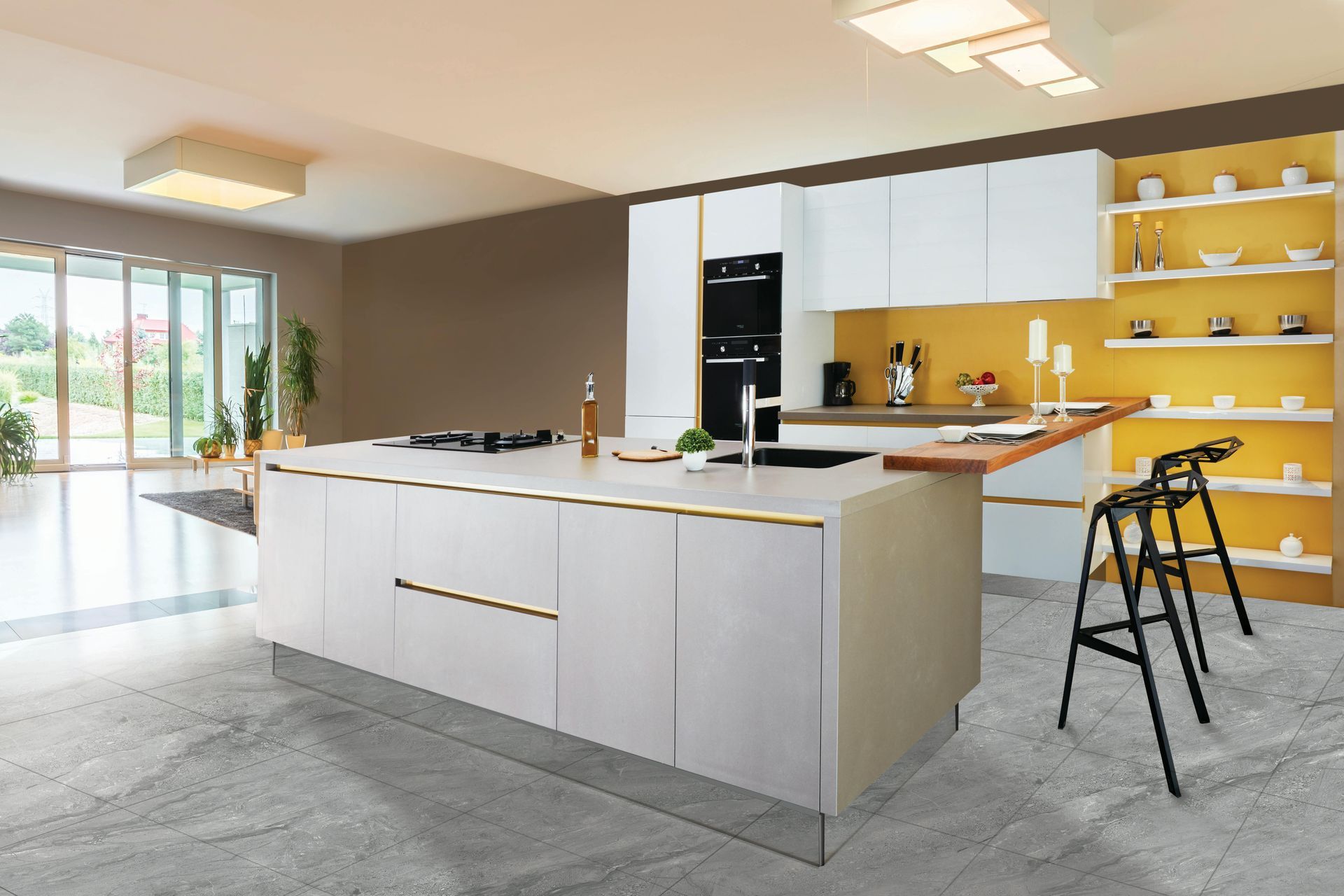How to Choose the Best Kitchen Countertops for Your Home

Choosing The Best Kitchen Countertops For Your Home
Your kitchen countertops do more than just hold your appliances and groceries. They define the space, add style, and impact functionality. The right countertop makes cooking easier, speeds up cleaning, and even boosts your home’s value.
With so many materials, colors, and finishes out there, choosing the right one can feel overwhelming. Should you go with durable granite, low-maintenance quartz, or budget-friendly laminate? What about heat resistance, stain prevention, and long-term durability?
This guide breaks it all down—what to consider, the pros and cons of different materials, and how to match your countertops with your kitchen’s style.
If you’re planning a full kitchen remodel, check out The Ultimate Guide to Home Remodeling Services for expert advice on home upgrades.
Factors to Consider When Choosing Kitchen Countertops
Choosing the right kitchen countertops isn’t just about looks. Durability, maintenance, cost, and functionality all play a role. A beautiful countertop that stains easily or requires constant upkeep may not be the best choice for a busy kitchen.
Here’s what to consider before making your decision.
Budget
Countertop prices vary widely. Natural stone options like granite and marble cost more, while laminate and butcher block are budget-friendly. Quartz falls somewhere in between, offering a mix of durability and style.
- High-end options ($80–$250 per square foot): Granite, marble, quartzite
- Mid-range options ($50–$100 per square foot): Quartz, concrete, solid surface
- Budget-friendly options ($20–$50 per square foot): Laminate, butcher block
Pro tip: Factor in installation costs. Some materials, like granite and concrete, require professional installation, adding to the overall price.
Durability & Maintenance
Not all countertops handle daily wear and tear the same way. Some resist scratches and heat, while others need regular sealing.
- Highly durable: Quartz, granite, concrete
- Heat-resistant: Granite, concrete, stainless steel
- Scratch-resistant: Quartz, granite, solid surface
- Low maintenance: Quartz, laminate, solid surface
- Requires sealing: Granite, marble, concrete
Pro tip: If you cook often, choose a material that handles heat and spills without staining or warping.
Aesthetic Appeal
Your countertops should match your kitchen’s design. Light-colored countertops brighten up a space, while darker tones add warmth and sophistication.
- Modern kitchens: Quartz, concrete, stainless steel
- Traditional kitchens: Granite, marble, butcher block
- Farmhouse kitchens: Butcher block, quartz, soapstone
Heat & Scratch Resistance
If you place hot pans directly on your countertops or do a lot of chopping, choose a material that can handle it.
- Best for heat resistance: Granite, concrete, stainless steel
- Best for scratch resistance: Quartz, granite, solid surface
- Worst for heat & scratches: Laminate, butcher block
Pro tip: Always use trivets and cutting boards, no matter how durable your countertops are.
Ease of Cleaning & Maintenance
Some materials stain easily, while others wipe clean with just soap and water.
- Easiest to clean: Quartz, laminate, solid surface
- Most stain-resistant: Quartz, stainless steel
- Most high-maintenance: Marble, butcher block, concrete (requires sealing)
Pro tip: If you want countertops that stay looking new with minimal upkeep, go for quartz or laminate.
Popular Kitchen Countertop Materials & Their Pros & Cons
The right countertop material depends on your lifestyle, budget, and design preferences. Some materials are low-maintenance and durable, while others require regular care to keep them looking their best.
Here’s a breakdown of the most popular kitchen countertop materials, along with their pros and cons.
Granite Countertops
Granite is one of the most durable and heat-resistant countertop materials. It’s a natural stone that adds a high-end look to any kitchen.
Pros:
- Extremely durable and scratch-resistant
- Heat-resistant (great for placing hot pots and pans)
- Unique, natural patterns for a luxurious look
- Increases home resale value
Cons:
- Requires sealing to prevent stains
- Expensive compared to other materials
- Heavy, requiring professional installation
Best for: Homeowners who want a high-end, durable, and long-lasting countertop.
Quartz Countertops
Quartz is an engineered stone made from crushed quartz and resin. It offers the beauty of natural stone without the maintenance.
Pros:
- Non-porous (resists stains and bacteria)
- No sealing required (unlike granite and marble)
- Wide range of colors and patterns
- Highly durable and scratch-resistant
Cons:
- Not as heat-resistant as natural stone
- Can be pricey (similar to granite)
- Heavy, requiring professional installation
Best for: Homeowners who want a stylish, low-maintenance, and durable countertop.
Marble Countertops
Marble is known for its classic and luxurious appearance. However, it’s one of the most high-maintenance countertop materials.
Pros:
- Elegant and timeless
- Naturally cool, making it ideal for baking
- Unique veining (no two slabs are alike)
Cons:
- Easily stains (especially from wine, coffee, and acidic foods)
- Scratches easily due to its soft surface
- Requires sealing to protect against damage
- Expensive
Best for: Homeowners who love the look of marble and don’t mind extra maintenance.
Butcher Block Countertops
Butcher block countertops offer a warm, natural look and are often used in farmhouse-style kitchens.
Pros:
- Affordable compared to stone materials
- Can be refinished by sanding down scratches
- Adds a warm, natural touch to the kitchen
Cons:
- Prone to scratches and dents
- Requires sealing to prevent water damage
- Not heat-resistant (can scorch from hot pans)
Best for: Homeowners looking for a budget-friendly, natural-looking countertop.
Concrete Countertops
Concrete countertops offer a modern, industrial look and can be customized with unique textures and finishes.
Pros:
- Highly durable
- Heat-resistant
- Customizable (can be stained or textured)
Cons:
- Requires sealing to prevent stains
- Prone to cracking over time
- Heavy, requiring professional installation
Best for: Homeowners who want a custom, industrial-style countertop.
Laminate Countertops (Budget-Friendly Option)
Laminate is one of the most affordable countertop materials. Modern laminate options mimic the look of stone or wood at a fraction of the cost.
Pros:
- Budget-friendly
- Easy to clean
- Lightweight and easy to install
Cons:
- Not heat-resistant (can melt from hot pans)
- Prone to scratches and chipping
- Lower resale value than stone options
Best for: Budget-conscious homeowners who want a stylish but affordable option.
Countertop Styles & Finishes to Match Your Kitchen Design
Countertops don’t just need to be functional—they should also match your kitchen’s overall design. The right style and finish can tie everything together, whether you want a modern, classic, or rustic look.
Here’s what to consider when choosing a countertop style and finish.
Matte vs. Glossy Finishes
The finish you choose impacts both the appearance and maintenance of your countertops.
- Matte (Honed) Finish: Soft, natural look with no shine. Hides fingerprints and smudges better but can make colors appear duller.
- Glossy (Polished) Finish: Smooth, reflective surface that enhances color depth and adds a luxurious touch. However, it shows smudges and scratches more easily.
Best for modern kitchens: Glossy quartz, polished marble
Best for rustic or farmhouse kitchens: Matte granite, honed quartz
Edge Styles: What Works Best?
The edge profile of your countertops may seem like a small detail, but it impacts the overall look and even the safety of your space.
- Straight Edge: Simple, clean look (great for modern kitchens).
- Beveled Edge: Angled cut at the top (adds a decorative touch).
- Bullnose Edge: Fully rounded edge (safe for families with children).
- Ogee Edge: Classic, elegant curve (ideal for traditional kitchens).
- Waterfall Edge: Extends down the sides for a seamless, dramatic effect (popular in luxury kitchens).
Color Trends: What’s Popular Right Now?
The color of your countertops should complement your cabinetry, flooring, and overall kitchen design.
- Light colors (white, beige, soft gray): Brighten up small kitchens and create a clean, airy feel.
- Dark colors (black, deep gray, navy): Add sophistication and contrast, but may show dust and crumbs more easily.
- Natural tones (earthy browns, soft greens, warm taupes): Work well in rustic and farmhouse-style kitchens.
Pro tip: Neutral countertops provide timeless appeal, while bold colors make a statement. If you’re unsure, go for a classic white or light gray quartz—it works with nearly any style.
How to Choose the Right Countertop for Your Needs
The best countertop for your kitchen depends on your lifestyle, cooking habits, and how much maintenance you’re willing to do. Some materials work better for busy households, while others are ideal for those who love a luxury look without the upkeep.
Best Countertops for a High-Traffic Kitchen
If your kitchen gets a lot of use, durability and low maintenance should be your top priorities.
- Quartz: Scratch-resistant, stain-resistant, and doesn’t need sealing.
- Granite: Heat- and scratch-resistant, but requires occasional sealing.
- Solid Surface (Corian): Durable, easy to clean, and repairable if scratched.
Avoid: Marble (stains easily) and butcher block (scratches and water damage).
Best Countertops for Families with Kids
If you have kids, your countertops need to be tough, stain-resistant, and easy to clean.
- Quartz: Wipes clean easily, doesn’t stain, and holds up to spills.
- Laminate: Budget-friendly and low-maintenance.
- Solid Surface: Seamless design means no cracks for crumbs or spills to get trapped.
Avoid: Marble (too delicate), concrete (prone to cracks), and butcher block (can absorb spills).
Best Countertops for Low-Maintenance Homeowners
Not everyone wants to deal with sealing or polishing their countertops. If you prefer a hassle-free option, go for:
- Quartz: No sealing, resists stains, and cleans with soap and water.
- Laminate: Inexpensive and doesn’t require sealing.
- Solid Surface: Smooth, easy-to-clean surface that resists stains.
Avoid: Granite, marble, and concrete (all require sealing).
Best Countertops for a High-End, Luxurious Look
Want a countertop that stands out and adds value to your home? Consider:
- Marble: Elegant and timeless (but requires maintenance).
- Quartzite: Natural stone with a high-end look, similar to marble but more durable.
- Waterfall Edge Quartz or Granite: A seamless, modern design feature.
Avoid: Laminate (doesn’t have the same premium feel).
Eco-Friendly and Sustainable Countertops
If sustainability is important to you, consider materials made from recycled or natural, renewable resources.
- Recycled Glass: Made from crushed glass and resin, offering a unique look.
- Reclaimed Wood (Butcher Block): A sustainable option with a warm, natural aesthetic.
- Concrete: Can be made with recycled materials and lasts for decades.
Avoid: Quartz (engineered using resins and not biodegradable).
Countertop Installation: DIY vs. Professional Help
Once you’ve chosen the perfect countertop, the next step is installation. Some materials are easy to install yourself, while others require professional tools and expertise. A poor installation can lead to cracks, uneven surfaces, or even long-term structural damage.
When DIY Installation Makes Sense
If you’re on a tight budget and have some handyman skills, some countertop materials are DIY-friendly.
- Laminate: Lightweight and easy to cut, making it the best option for DIY installation.
- Butcher Block: Requires precise cutting and sealing, but can be installed with basic tools.
- Tile: Installing a tile countertop is labor-intensive but possible for a skilled DIYer.
Challenges of DIY
- Cutting mistakes can be costly.
- Improper sealing can lead to moisture damage.
- Heavier materials may be difficult to handle without help.
Best for: Homeowners comfortable with tools and willing to take on a hands-on project.
When to Hire a Professional
Most stone and solid-surface countertops require professional installation. These materials are heavy, require precise cutting, and must be properly sealed to prevent damage.
- Quartz: Requires special tools to cut and install properly.
- Granite & Marble: Extremely heavy and prone to cracking if not handled correctly.
- Concrete: Needs custom molds and professional sealing.
- Solid Surface (Corian): Requires seamless joining techniques that DIYers may struggle with.
Benefits of Professional Installation
- Ensures a perfect fit and finish.
- Avoids costly mistakes that can come from improper sealing or cutting.
- Increases durability by making sure the countertop is properly supported.
- Often comes with a warranty, protecting your investment.
Best for: Homeowners who want long-lasting, professional-quality results.
Which Option Is Right for You?
If you’re working with affordable, lightweight materials like laminate or butcher block, DIY may be a cost-effective solution. However, for high-end materials like quartz, granite, or marble, professional installation is the best choice to ensure long-term durability.
For more expert remodeling insights, check out The Ultimate Guide to Home Remodeling Services.
Conclusion
Choosing the perfect kitchen countertops comes down to balancing style, durability, and maintenance. Whether you need a luxurious marble surface, a low-maintenance quartz option, or a budget-friendly laminate, the right choice depends on your cooking habits, lifestyle, and design preferences. Durability, heat resistance, and ease of cleaning should be key considerations, especially for busy households.
While some materials allow for DIY installation, high-end options like granite, quartz, and concrete require professional expertise to ensure a flawless finish. A well-installed countertop enhances your kitchen’s functionality and increases home value, making it a worthwhile investment.
Looking to upgrade your kitchen with expertly installed countertops? Do It All Handyman Services is your trusted home improvement partner in River Falls and Hudson, WI.
We specialize in kitchen remodels, bathroom renovations, basement transformations, flooring installation, and finishing services. Whether you're revamping your space or starting fresh, our skilled team ensures quality craftsmanship and attention to detail every step of the way.
Let’s bring your vision to life with seamless, stress-free remodeling. Contact Do It All Handyman Services today for a consultation and experience top-tier home improvement in River Falls and Hudson, WI!






